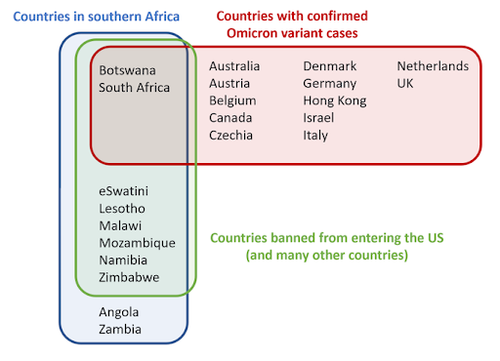For virologist Trevor Bedford, PhD, the past week has felt like January 2020 all over again.
In those earliest days of the pandemic, as early modeling data on the transmissibility of the novel coronavirus started to roll in, "it was pretty clear what would happen," he said.
"It was fairly easy to realize with those numbers that we were actually now on planet B, though so much of the world still thought we were on planet A," added Bedford, who was one of the first experts to raise alarms about community spread in the U.S. "When we got to March 2020, it became very obvious that we were on planet B now."
Bedford spoke during a virtual panel hosted by his employer, Fred Hutch, a cancer research center in Seattle. He and other researchers were interviewed by Fred Hutch president and director Thomas Lynch Jr., MD, as well as comedian Trevor Noah, host of "The Daily Show." Bedford made those previous remarks to Noah.
Bedford also told Noah that researchers back in January 2020 weren't willing to make calls despite the evidence mounting before them.
"This phrase that I hate is, 'There is no evidence that...'" Bedford said. "'There's no evidence that the Alpha variant is more severe,' or 'There's no evidence that masks work.' When, really, it's that you don't have firm, hard evidence where you can say, 'Yes, this is definitely the case.'"
"But you should, with the mix of evidence that you have, be able to say, 'Yes, we suspect that masks do work,' or 'We suspect that the Alpha variant is more severe,'" he noted.
"People aren't willing to walk out on a limb enough [when it comes to] what they actually think," he added.
Bedford also described to Noah what it was like to be at the forefront of getting coronavirus testing up and running in the U.S., noting that in February 2020, his lab had samples that indicated community spread but "we were being told not to test them."
"We did anyway and discovered community transmission," he continued. "By genome sequencing of the virus, we were able to tell there were about 1,000 infections at that point rather than just one."
So why is Bedford concerned about Omicron? He told Lynch that the number of mutations in the spike protein is "kind of wild."
Other variants including Alpha, Beta, Gamma, and Delta have had "maybe eight or 10 mutations in the spike protein, and that's largely what's given them their advantageous phenotype. Omicron comes ... perhaps from an immunocompromised individual, with 30 mutations in the spike protein."
"As soon as people were able to see that genome, it looked striking, it looked worrisome," he noted.
The rapid spread in South Africa's Gauteng province is also a red flag, as it's rapidly replacing Delta, he said.
"If you look at case counts over time, you get maybe three times the current rate of spread of Delta," he explained. "Delta [spread] was two times compared to previous variants."
Taken together, the changes in the genome and the rapid rise in cases "had people very concerned for good reason."
It will take about 2 weeks to get clearer information on Omicron's immune evasion via neutralization assays, though it "already seems like it will be different," he said.
Bedford explained that the Beta and Mu variants, for instance, brought an eight- to 10-fold drop in antibody titers in neutralizing assays testing vaccinated immunity -- but fortunately, that hasn't had a large impact on vaccine efficacy.
"What we're waiting for is to see what Omicron comes in at," he said. "Is it 20-fold? Is it 30-fold? We know 20-fold is very different from 50-fold. There's a very wide range of numbers that you could imagine for this drop."
There's also the possibility that booster or third doses of the mRNA vaccines offer decent protection against Omicron, he noted.
"We know from three doses you get a nice broadening of immune response, so it might be less of a drop with the three doses, but we don't know yet," he said. "We could get lucky and three doses will still protect against infection quite well. Or we might need to try to very quickly have an Omicron-specific booster and move that through the regulatory process."
It's also possible, he added, that three doses won't confer protection against infection, but will prevent severe disease.
Monoclonal antibody therapies, on the other hand, are likely to be affected, said Rachel Bender Ignacio, MD, MPH, a Fred Hutch expert who was also on the panel. That's because they target regions where Omicron has known mutations, she explained, and previous variants have caused similar problems for these therapies.
But direct-acting antivirals like Merck's molnupiravir or Pfizer's ritonavir likely won't be affected, Bender Ignacio continued. Both of these target viral replication.
"Omicron has a lot of mutations in the spike protein, but we really don't think that those mutations will have an effect on the way that the virus reproduces itself once it's inside the cell," she said.
That's a sign of hope, as Bedford made a strong call that there will never be a "post-COVID" world.
"People need to realize that it's going to be around forever," he said. "Every year, just like we have flu season, there will be COVID season. It's going to be a thing that we have to deal with every year."
"We'll be working on better vaccines, on better ventilation, and on antivirals," he promised.
https://www.medpagetoday.com/special-reports/exclusives/95948
